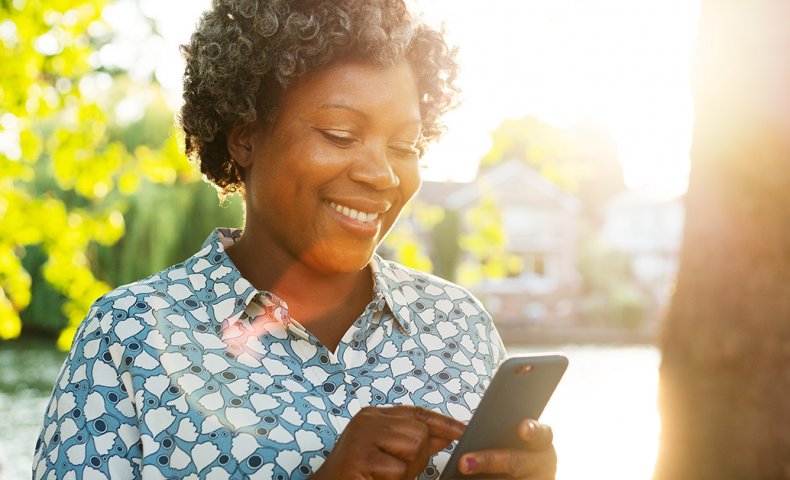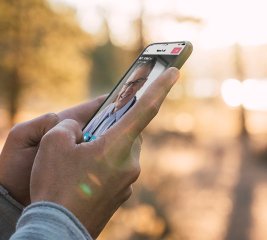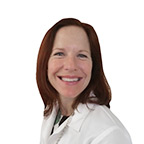
[Image description: An older woman is outside looking at her smartphone for a doctor visit. She is near a pond and there are trees in the background.]
Whether you enjoy golf, gardening or playing with your grandchildren, taking care of yourself can help you do the things you love — longer.
Healthy aging involves a lot of changes, many of which you may not expect. There could be a shift in senses of taste and smell, muscle strength and balance and skin quality. While all these changes are completely natural, there are some tips you can keep in mind to make sure you are staying healthy throughout the process.
Healthy eating
In general, older adults may need fewer calories than they used to, but the same amount of nutrients. Therefore, it’s important to choose foods that are rich in vitamins and minerals, such as fruits, vegetables and whole grains. Older adults may also have changes in taste. Here are a few key shifts that can affect your nutrition and what to do about them:
- You may not feel as thirsty. Even though your sense of thirst may decrease as you age, you likely still need the same amount of water to stay hydrated. Try to sip water throughout the day, even if you don’t feel particularly thirsty. It’s also a good idea to avoid drinking a lot of beverages with added sugar, such as soda.
- You may have a harder time chewing foods. Your teeth and gums change as you age, which can make it difficult to chew foods like vegetables, fruit and meat. It might help to try cooked or canned foods. Cooked carrots or green beans, for example, are nutritious, tasty and easier to chew than raw veggies. Low-sodium soups are another healthy option.
- Foods can lose their flavor. Senses of smell and taste can change with age. As a result, some foods may not taste as flavorful, or they might taste different than they used to. Try using herbs and spices to kick up the flavor without adding extra sodium or calories.
Staying active
Regular activity can help you maintain muscle strength so you can independently navigate your day-to-day life. You can follow these tips to stay physically active:
- Start small. If you’re not used to being physically active, that’s okay! Try to start with something small, such as a walk around the block a couple of times a day. Aim to increase your activity to at least 30 minutes of moderate activity five days a week. If you get bored of walking, try biking or any other physical activities you might enjoy!
- Work on your balance. Balancing exercises can help prevent falls, which are the leading cause of injury for older adults.
- Build and maintain muscle. To prevent muscle loss as you age, you can try muscle-strengthening activities twice a week. Lift weights, use resistance bands or even use your own body weight to do exercises like squats and push-ups. Activities such as gardening, yard work or snow shoveling are also great ways to incorporate some strength-training into your everyday life.
Taking care of your skin
Your skin may also change as you age, and could become thinner and drier. It may also take longer for cuts to heal, and excessive scratching could lead to infection more easily. Here are some steps to take care of your skin:
- Prevent dryness. Use a mild soap and take showers in warm water to keep your skin well-hydrated.
- Protect from sun exposure. Skin cancer is also an important factor to consider for older adults. Most cases of skin cancer occur in adults older than age 65. To protect your skin from the sun’s rays, the American Academy of Dermatology recommends using sunscreen with an SPF of at least 30. Try to find a broad-spectrum sunscreen, which protects you against both types of the sun’s rays (UVA and UVB).
- Check for changes. Once a month, examine your skin. If you notice anything unusual such as new growths or sores, try to see a doctor right away.
Find support online
Remember, it’s always a good idea to take care of yourself — no matter what stage of life you are in. If you have questions about your health, you can talk to a doctor on LiveHealth Online anytime. Doctors can help with rashes, sunburns, skin infections and other urgent care concerns.
Recommended Posts




